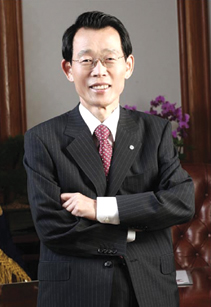Koland to Invest 12.7 Tln Won
Korea Land Corp. to help revive the sagging economy and kick off administrative city project in Azerbaijan
 Korea Land Corp. (Koland) plans to invest a total of 12.7 trillion won in its land and housing development projects this year to revitalize the economy and create jobs, the company said recently.
Korea Land Corp. (Koland) plans to invest a total of 12.7 trillion won in its land and housing development projects this year to revitalize the economy and create jobs, the company said recently.
The investment figure is up 26 percent from last year and will be invested in such areas as the projects in Songpa, Hwasung-Dongtan2, land reimbursements, new projects, the expansion of project funding and to help the funding situations of construction companies, the company said.
The company plans to release 61 percent or 7.7 trillion won of the investment in the first half of this year along with land reimbursements in Goyang-Hangdong and Songpa-Wirae in Seoul. Other similar actions will be tackled in one to two months this year in line with the government policy to revitalize the sagging economy throughout the country as early as possible, the company said.
The state-run company will expedite the supply of funds to construction companies in dire need of cash. Construction projects costing more than 5 billion won will be ordered quickly and advance payments will be increased to more than 20 percent of the total contract money. Koland has also allocated 700 billion won to buy idle land from construction companies in order to relieve their funding shortages.
Altogether, Koland plans to buy 3 trillion won worth of land from construction companies by next year and will increase the fund if needed to alleviate cash shortages of builders in Korea.
The 3 trillion won will help 250 construction firms ease their funding squeezes. During the first auction of land on Dec. 1, there were 25 parcels of land worth 383.8 billion won sold. In the second auction in January, 700 billion won worth of land was purchased. In March, Koland will continue to buy land with the 2 trillion won left in its fund.
From the second purchase of land, Koland will allow construction firms to help their affiliates repay their debts in accepting their requests. From November last year, the company allowed the break-up of joint housing project land valued at 412.7 billion won in 16 cases to help the funding situations of the construction firms and cut interest rates on delayed repayments from 14 percent per year to 9.8 percent per year. The company will also cut interest rates on delayed payments when the joint housing land is sold, in addition to allowing the exchange of land already supplied with other land.
Koland has launched a project to supply 33 million square meters of land to be used as industrial parks for SMEs over the next 10 years so that many smaller businesses would be able to build plants without paying for land.
The company decided to pay reimbursement for land at two of the four industrial complexes including the Youngcheron Industrial Complex from the second half of the year and will cut by 10 percent the construction periods of 11 industrial parks being built around the country including the Sokmun Industrial Complex to enable an earlier opening.
Koland also will assume the function of a land bank to reduce national land expenses, under which the company will hold 10 trillion won worth of land for social overhead capital projects to stabilize land prices and provide a base for economic resurgence. Setting up a land bank is a core business of the government as a means to stabilize prices.
Koland will also take on the responsibility of exporting Korean-type cities overseas to expand Korea's economic turf. Koland is undertaking 11 new city and industrial complex construction projects in nine foreign countries. The idea is to secure natural resources and food production bases and assist with the advancement of private companies overseas by taking on new urban town construction projects.
The company signed a prime contract with the government of Azerbaijan last December to build an administrative city with a total space of 72 million square meters, which is slated to break ground this month. Koland will earn 24 million Euros in service fees and is slated to earn an additional 59 million Euros when it secures the second phase of the project. The most significant aspect of the project is that it will cost $28 billion to finish as it includes civil construction, railroad, power and other infrastructural works, creating a huge opening for Korean builders to enter the Central Asian country.
In addition, Koland is working on securing similar projects in a number of other countries including Yemen, Libya, Senegal, Mongolia and Kyrgyzstan. The company plans to build exclusive industrial complexes in Cambodia and Russia. The company also plans to build harbors and logistics terminals in Russia if things proceed without a hitch. nw
President Lee Jong-sang of Korea Land Corp.
3Fl, 292-47, Shindang 6-dong, Chung-gu, Seoul, Korea 100-456
Tel : 82-2-2235-6114 / Fax : 82-2-2235-0799